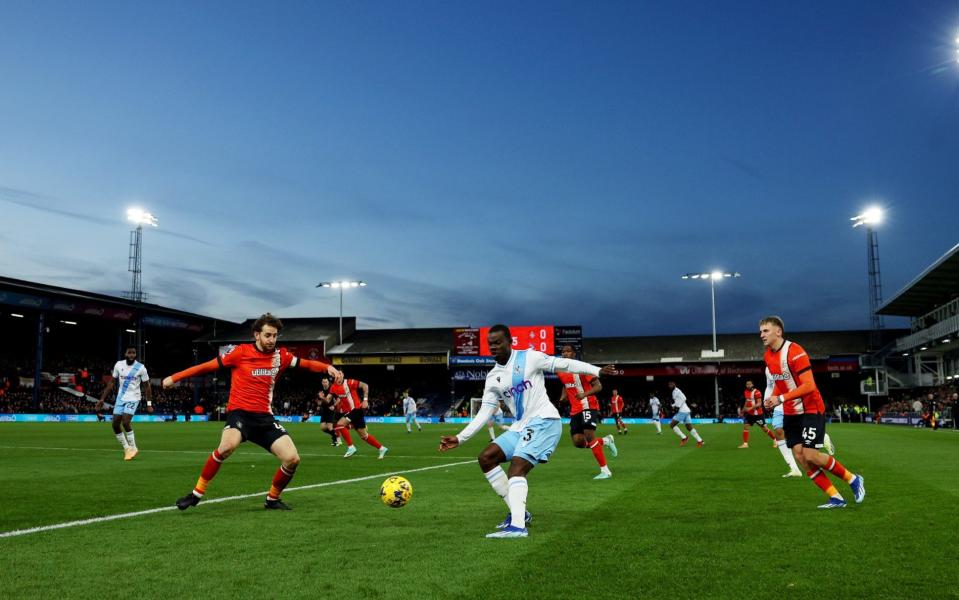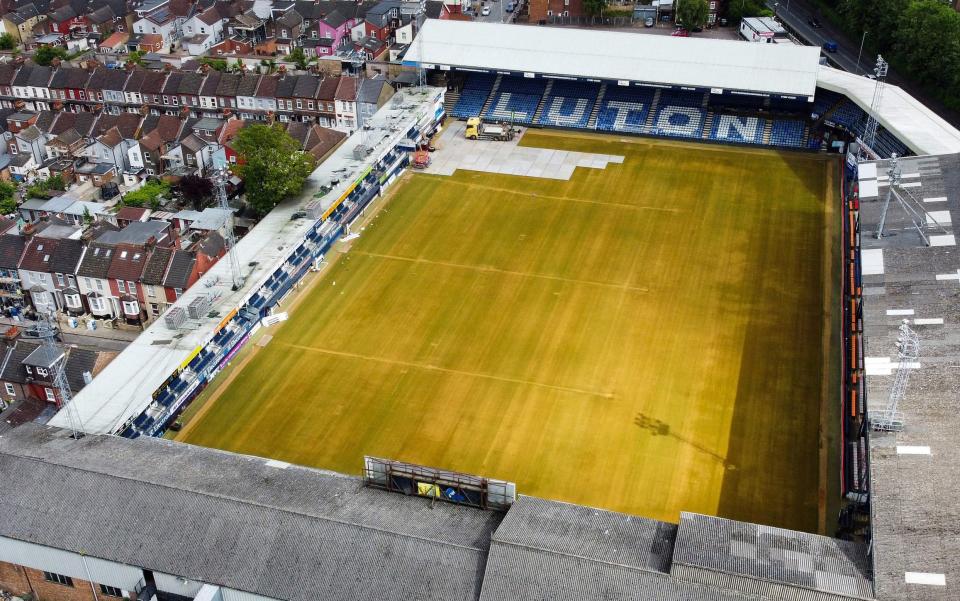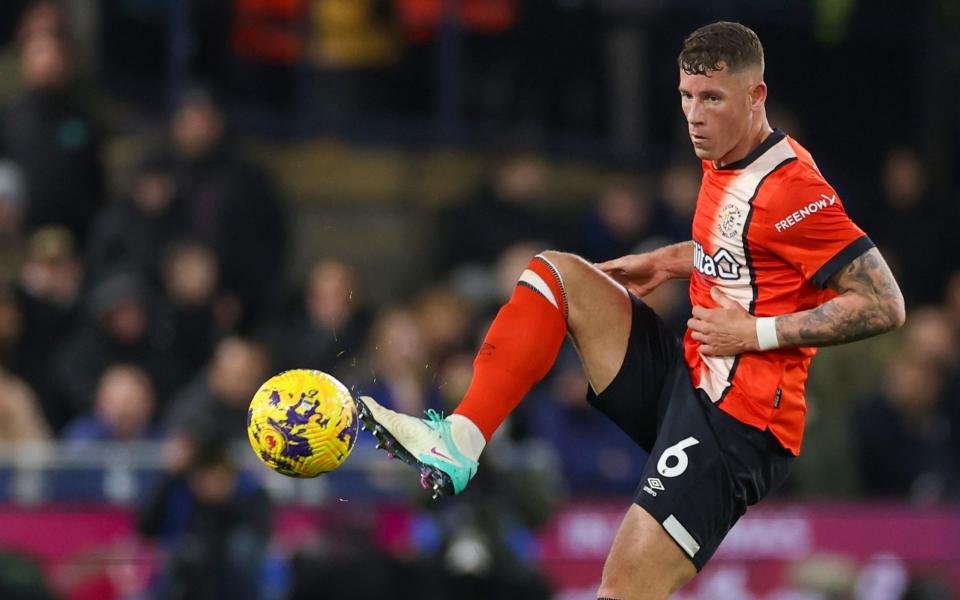Luton vs Manchester City is the biggest financial mismatch in Premier League history

When Luton Town won promotion to the Premier League, many wondered this: how will Erling Haaland and the rest of the treble-winning Manchester City aristocracy react to walking into Kenilworth Road? What will they think as they head through a main entrance squeezed between a tiny car park and bus expressway? How will they cope in a dressing room smaller than an Etihad Stadium broom cupboard? Well, on Sunday we will find out.
The image of the highly remunerated superstars of the game filing into the crumbling surrounds of a stadium wedged amid modest terraced houses is a telling one. Because never in the history of the Premier League can there have been such a disparity between the finances of two clubs. This is less a David vs Goliath confrontation as Croesus taking on the widow and her mite.
Just a brief look at the figures tells you all you need to know about the wealth chasm between these two operations. Last season City posted record-breaking revenues of £712 million, their profits doubling from £41 million to £80 million. Meanwhile Luton earned £17.7 million, delivering a loss of £6.4 million.
Look closer and the gap only widens. Match-day revenues at the Etihad last year topped £2.31 million per game, a figure that is set to increase substantially when the magnificent new North Stand development is completed, raising the stadium capacity to 62,000. At Kenilworth Road, across the entire season match-day takings amounted to £4.9 million (or £178,000 per game). It is no real surprise, given that, before they were all snapped up, ticket prices for Sunday’s encounter were £36. For City’s next home game against Crystal Palace, hospitality packages are still available starting at £750.

Yet this is not a one-off cup fixture, Have City against Have Not Town. These are two clubs operating in the same division. And as Luton proved in their midweek fixture against Arsenal, while the bank accounts may occupy entirely different universes, on the pitch this is a club determined to compete.
During that game with Arsenal, the home supporters amused themselves by bellowing out to their illustrious visitors the chant “Conference champions, you’ll never sing that”. It is sung as both a point of pride and of fury. Pride because it was only 14 years ago that the club – who were relegated the season before the inaugural Premier League, so missing the chance to enjoy its income stream – were obliged to fight their way up from the fifth tier. And fury because of the reasons they were deposited there in the first place. The 30-point deduction imposed on them after they went into administration in 2008 was the very definition of kicking a club when it is down.
Conference Champions, you’ll never sing that🎶
Just wanna say how amazing our away support has been this season. Completely outsung 70k home fans today. Doing ourselves proud every game this season.
We go again🧡 pic.twitter.com/oX5DSjweuR— Zac Neal (@NonLeagueZac) November 11, 2023
Given the 115 charges for financial breaches hanging over City, which the club stringently deny, it is a chant that might take on a different tone when it is issued on Sunday. If Luton found themselves out of the league for breaching one regulation – do not go bust – what possible punishment might be appropriate for the “115ers”? Though in truth such draconian measures are unlikely. Not least because Luton, a club then on its knees, did not have the financial wherewithal to instruct the level of legal assistance available to City.
But in many ways, the nightmare of their collapse has informed Luton’s approach to finance ever since. This is a club in which care and prudence have become enshrined. Take the make-up of the two sides on Sunday. While City can pay out £100 million for Jack Grealish and tempt Haaland to the club with wages that surpass £40 million a year, Luton’s record signing is Ryan Giles, picked up from Wolves in the summer for £5 million.
Under Rob Edwards’ outstanding stewardship, they have relied on bettering players others did not value. Like the centre-back Teden Mengi, bought from Manchester United for an undisclosed fee and now playing with the kind of authority that makes you wonder what his former club were doing. Or Ross Barkley, his career drifting into well-remunerated oblivion in Nice, brought in on a free transfer and against Arsenal performing once again like he did in his glory days at Everton.

Edwards, with typical modesty, refused to take any credit for Barkley’s return to form, preferring to insist it is the player himself who is responsible. But the fact is he has developed a side which challenges all the assumptions of football finance. The general rule is the higher the wage bill the higher the league position. And while City’s clever management system has ensured they gain some silverware return for their outlay, they still have the third highest salary outlay in the division, behind the serial over-payers Chelsea and Manchester United. Luton’s is by far the lowest in the division. Yet of the three promoted sides last season, they look the most likely to survive.
The challenge for Edwards is to maintain the battle against standard expectation. And keep his club in the division. Because this season, thanks to the exponential increase in broadcast income that comes with promotion to the top flight, Luton’s takings could top £120 million. The precedent is Brentford, who jumped from £15 million in the 2020-21 Championship season to £140 million for their first in the Premier League.
And Brentford provide an excellent role model for Luton. Unlike Blackpool, where the returns from a season in the big time were largely diverted into the company bank accounts of the then owners, at Kenilworth Road the board is determined to invest the windfall for the future. Most of the fresh money will be spent on the new £165 million stadium at Power Court, due to open at the start of the 2025-26 season. Like Brentford’s move to their new home, if they could open this 20,000-capacity facility after enjoying a couple of years of the sort of television income City have enjoyed for the past 20, things will become very different for a club once expelled from the league for its financial mismanagement.
But that is for the future. For now, Edwards and his team have more pressing concerns. And in truth, they may well be hoping that when Haaland and his mates walk through the door of Kenilworth Road, the disparity with their home surrounds does make them feel very uncomfortable indeed.

 Yahoo Sports
Yahoo Sports 
